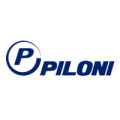Piloni Srl: Italian fastener manufacturer upgrades to the smart factory

Industry 4.0, also known as the Fourth Industrial Revolution, is one of the hottest topics of the manufacturing sector. More and more companies are digitalizing their production and transitioning to the so-called smart factories. More fluid production processes, real-time monitoring, reduction of production costs thanks to machine learning, the benefits are countless.
We interviewed Mr. Giuseppe Piloni, of the homonymous fastener manufacturer Piloni Srl, who told us how Industry 4.0 revolutionized his company.
How has the 4.0 industry been implemented in your company both from a production and logistic standpoint? Did you rely on an external company, or did you do everything on your own?
We have integrated Industry 4.0 acting both on production and logistics. The process took quite a fair bit of time to complete; we purchased new machines, integrated the existing ones, and implemented new software to interconnect everything to the various departments. Of course, we would have never made it on our own. For the integration, we requested the help of the companies that supplied us with the software already in use.
Did you take advantage of the National Industry 4.0 Plan issued by the Italian government? Do you think companies can carry out their transition to 4.0 independently?
Yes, we took full advantage of the tax incentives provided by the National Industry 4.0 Plan. In our case, the benefits have proved to be very decisive. The transition to digital was quite expensive, so I must say that the government's support was paramount to our choice to invest in this regard.
Industry 4.0 allows to fully exploit the information stored in the machines to increase efficiency and production capacity, but how does it actually work?
The interaction between machines is fully automatic, allowing us to monitor the information in real-time and adapt the system to the customers’ needs on the fly. All technical specifications of our products are handled exclusively in digital formats (3D models, 2D drawings, control plans, mould drawings) so that every operator can easily access the information they need, when they need. Plus this makes sure the info is always verified and up-to-date.
It is also possible to check the progress of each process directly from the office and react promptly to any downtime, thus optimizing production dynamics.
Our logistics department also benefited tremendously from this shift. First of all, the elimination of the human element in the most repetitive tasks led to a considerable decrease in mistakes. Packaging lines are fully digitalized, operators don't have to manually set packaging parameters, with the chance of trivial typos. When the pallet is ready, the machines will send all information to the operator in real-time via a wireless handheld device. Thanks to the implementation of the new software, the packaging line is also fully interconnected with the other departments. We can create and print labels in real-time and detect from the ERP system all the necessary information such as the number of pieces per box, number of boxes per pallet, label format and more.
Today you hear many people already discussing Industry 5.0, especially following recent developments in automation and robotics. What is your opinion on this subject?
At the moment, we are focusing on the recently installed system. I have studied these topics a bit, and I think that before talking about Industry 5.0, it is necessary to deepen our understanding of the recent investments in Industry 4.0.

